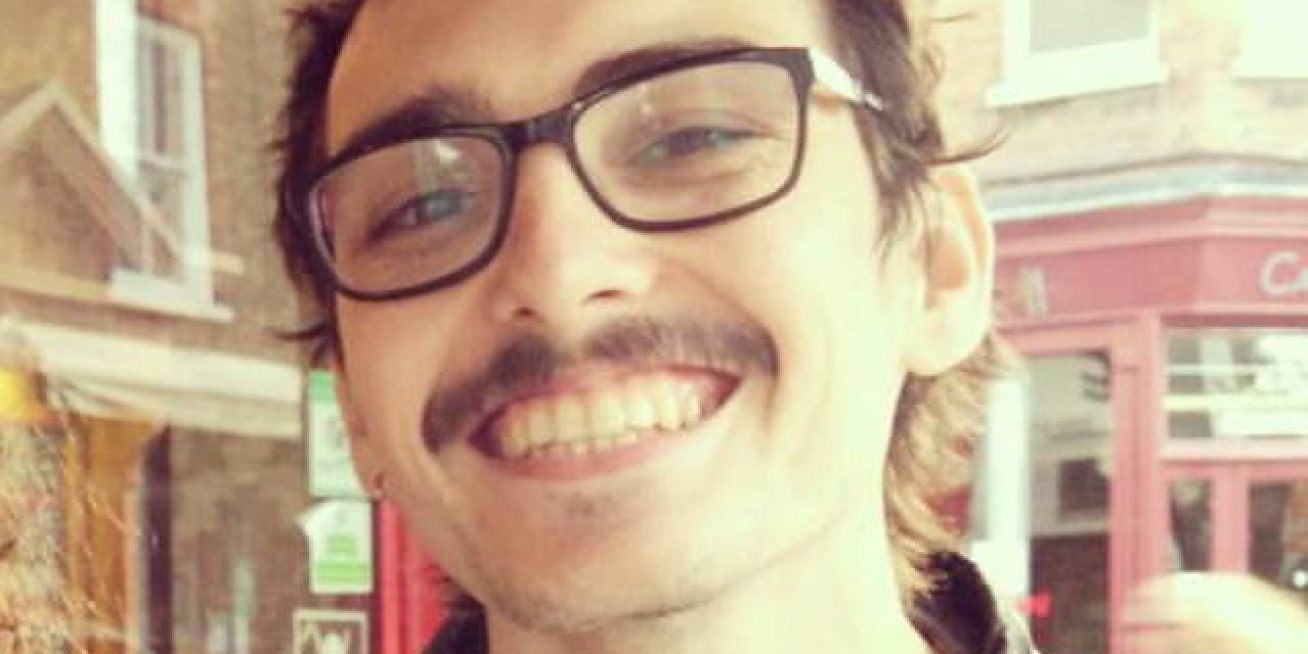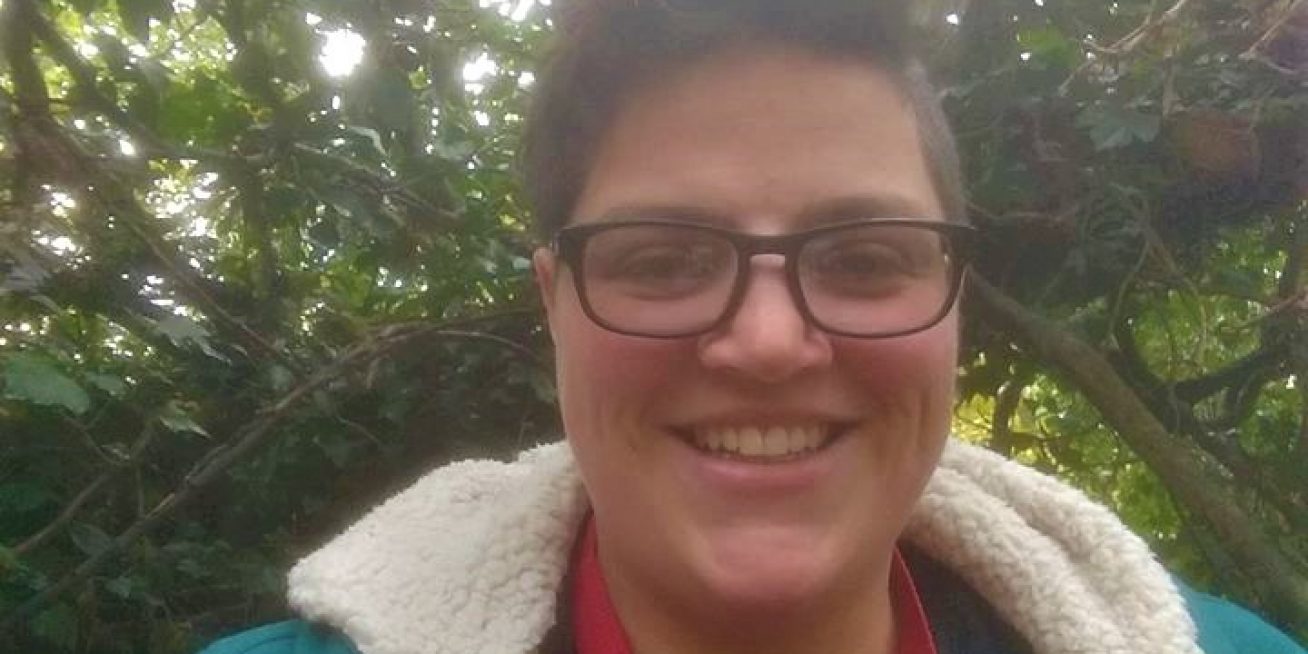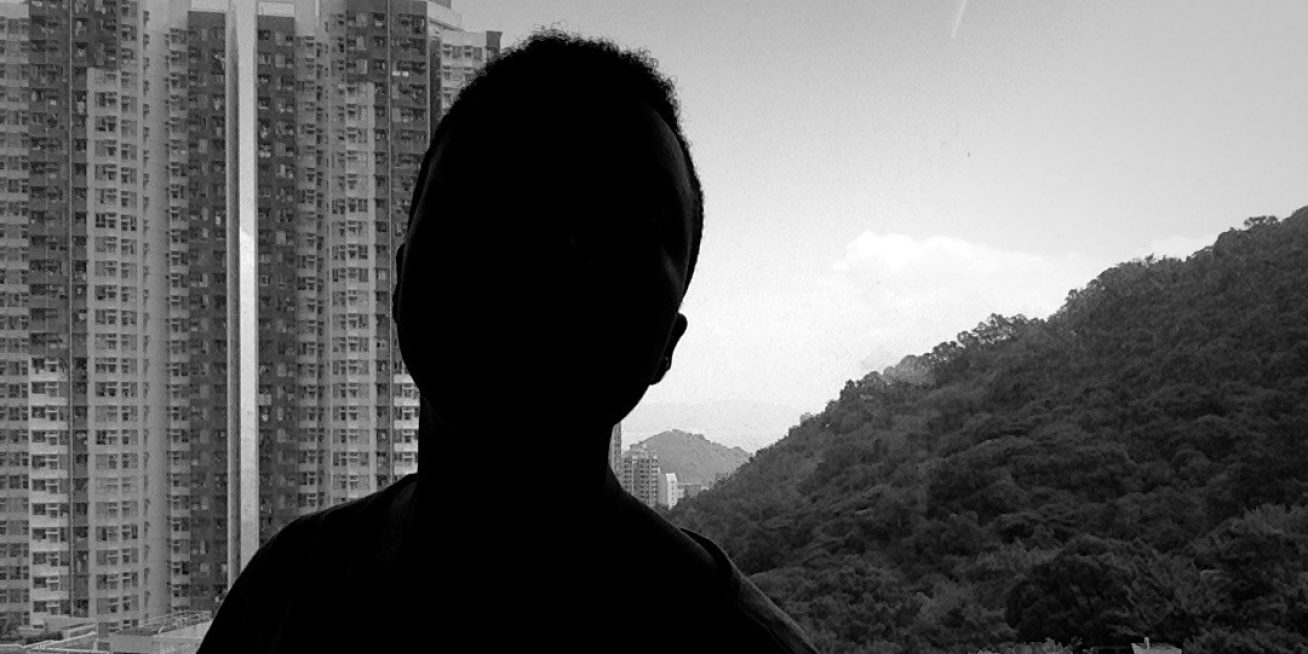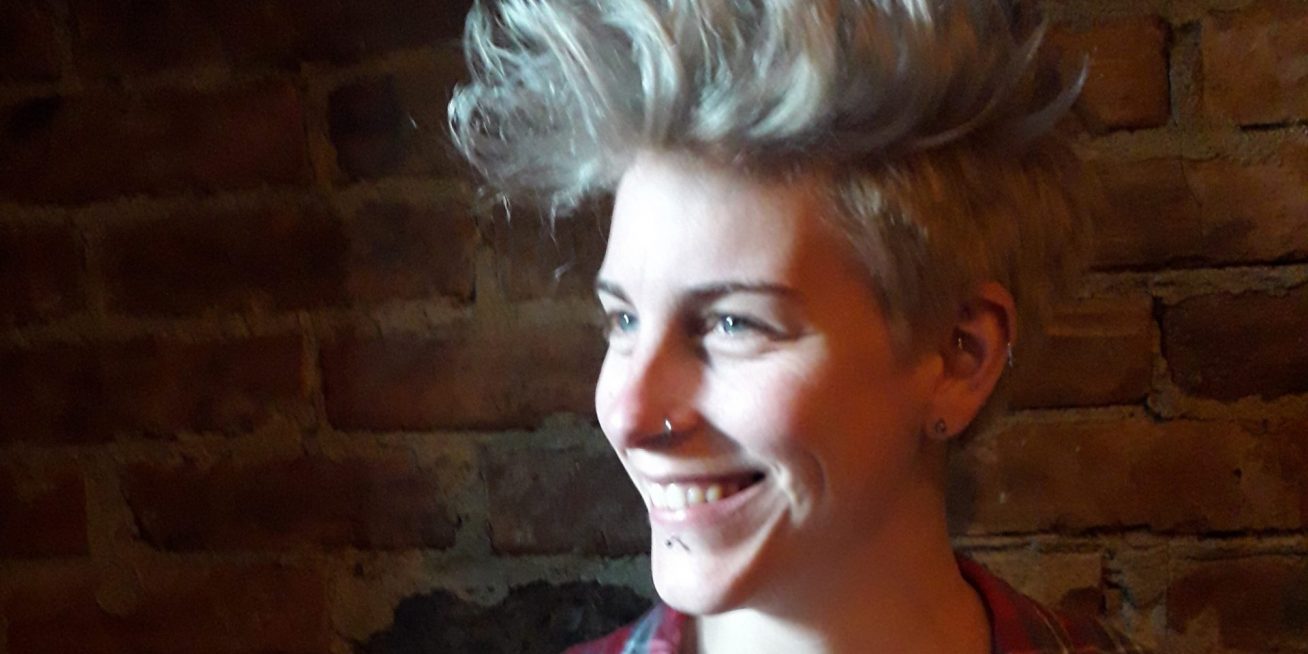Getting arrested at Greenham Common
Lynn describes the impact that Greenham Common Women's Peace Camp had on her and how she planned to get arrested and spend a week in prison, with unexpected consequences.
Illustration by Shonah from front cover of Greenham Common zine, November 1987. Donated by Lynn Daniel.
TRANSCRIPT
L: I got in-, involved with politics, I was looking for something, and I didn’t know what I was looking for. I knew I was different but I didn’t quite know what that was about. And I got involved in the local trades union, so then I went to Militant, SWP meetings, and so learnt – my learning and growing at that point was enormous. And... it was very much a case of – I got involved in Greenpeace and CND, and... it was getting involved with the North Leeds Peace Group. I had a friend in the group who’s a number of years older than me, Bron, who’s no longer around, a, a straight woman. And she, she said, ‘would you like to go down to Greenham?’. And I’d never, I’d never thought that was a possibility, I thought that was something for other people to do.Interviewer: Is this early ‘80s then? When was this?
L: So this, this was [pause] between ‘85 and ‘86. And, so it was – Greenham had been going on a while, but I’d only come across the North Leeds Peace Group at that point. And WONT, Women Oppose the Nuclear Threat, I came across them, and... it was... there was a lot of activity, political activity, in Leeds at that point. So I went down to Greenham with Bron, and all of a sudden I was meeting women who were just like me. And it was like – I always say it was like being hit over the head with a mallet and gaining clarity, ‘that’s what I am. After all this time.’ But I’d been married – I was married, we had a mortgage, so how do you fit the two together?
I always remember saying to work, ‘I am going down to Greenham’, I wanted to be part of a – at the beginning or sometime in December, we had a – you cut the fencing down and you went in as a, as a big group. And it’s a big demonstration, so I said that’s what I wanted to do, me and Bron had agreed it. And... we wanted to not pay our fines, and then have it brought back up to Leeds, the court process, cos it was in, in Newbury. And then go to prison for a week, that’s what our plan was. So I got checked out at work and they said that because it was for ethical reasons, as long as I didn’t do criminal damage, I could then... use my holidays to go to prison. [Laughs] It’s, it’s quite ludicrous when you think about it isn’t it? [Laughs] But, I – so I checked it all out first, and then in the December – cos I was going on a monthly basis, I was going for a weekend every month, there was a busload of women that went down. And I connected with those, well the majority of them were all lesbians, and it was lovely to hear what they were saying and how they were being. And so I could – I, I had somewhere to talk, and explore how I was feeling and what was going on for me. And that was so useful. So going down to Greenham made a huge difference, meeting other lesbians with politics. And being – and hearing things from a different – and, and questioning, being able to take things in and then... cos it – there wasn’t the internet in those days. You know, going down to your local library you didn’t find the books that you wanted. And so getting information, people’d lend you dog-eared copies of things. So I had to be careful particularly while still living with John, that I didn’t have any of that literature with me, because I didn’t want him to see it. It was, it was frowned upon. And I think it was frowned upon in society as a whole, not just... by my family members, or my husband.
So, we got, we got arrested, we went into Greenham, I had this... I remember this big second hand green duffel coat, a bottle of Lucozade in a pocket in case my, my blood glucose dropped. And we went through the whole – we were arrested, we went through the whole process, and then we got court dates. So we had to go back in the January, to go to court in Newbury. So... what was suggested was that we went in our most smartest, female gear, because it, then it made it look like... we were ordinary members of the public who were doing something because we believed in it. So it brings politics from a different slant. So I had a, a dress, and I wore that, and shoes and tights and – I’ve never worn them since [laughs] So... that was good, that was good to do and go to court, and we were fined. The fines weren’t enormous, I think they were £15. And we knew it’d be referred back to Leeds.
Well, I also remember... cos I was still going to down to Greenham on a monthly basis, there was conflict at home with my husband because he thought it was quite amusing when I first started going down, but it was a very much a case of – he was designing surveillance for Faslane in Scotland, cos that’s who he worked for, a company that did that, he was an electrical, electronic engineer. He may still be, I haven’t seen him since the late 1980s – but very much, that was in conflict with me bringing home big pieces of fencing and leaving it in the garden [laughs] So, yeah, there was a lot of conflict going on. And... he knew I’d been to court, he knew that I wanted to go to prison, he knew what I’d organised. But then... it must have been, it might have been February... we were expecting the court dates to come back up to Leeds, and Bron got her court date and I never got a letter. So I always remember the day, going down to the town hall to find out, ‘well where’s my letter, why haven’t I got a court date?’. And they told me, ‘well, it’s been paid. Your fine has been paid.’ And I was furious, absolutely furious. And sometimes when I’m angry, I go fairly quiet. And it, so it’s... so I came out of the town hall and in front of the art gallery was pro, a lot of pro-lifers, with leaflets. And... there was a guy came up to me, with a pro-life leaflet, and... I just vented my anger on him [laughs] And he just kept walking back and back and back right to the art gallery. And I couldn’t tell you what I said, but it was very political, it was, just all the stuff I believed. And... men and patriarchy, and the likes. So he looked, he went quite pale-looking [laughs] I think he, he wasn’t used to [laughs] to that sort of thing. I went back to work and I rung John quietly and the office, the whole office went quiet. I said, you know, ‘my fine’s been paid, I’m furious, absolutely furious.’ And... he said, ‘well I didn’t want you to go to prison’. I said, ‘that was my choice, you’ve taken my choice away from me’. And it also meant Bron had to go to prison on her own, and maybe they wouldn’t have put us together, it wouldn’t have mattered, but it was, it was that... leaving another woman vulnerable, that I didn’t agree with. I mean, Bron was married, they had children and the likes. She might have been in – I’m trying to think how old she’d have been – she might have been in her late forties, her fifties. And she was an artist, did some amazing art work. And... so yes, so that – it made me decide, actually I can’t be here any more, with him. But then it’s, well, how do you, how do you move out? I didn’t – my income went into the household income, I didn’t have a huge, a huge income, I was only an admin officer in... in the Department of Health and Social Security. So... it was almost like working out a plan as to what I could do. And one of my union friends offered, said her sister who lived with her in Scargill Grange – it’s an interesting name isn’t it? [Laughs] – Was, was going to the Bahamas to live. She’d got a job out there, so she said she’d have a spare room, so I could move in with her. So the date was set for the first of June and I gave him two weeks’ notice that I was leaving him and packed my stuff up.







